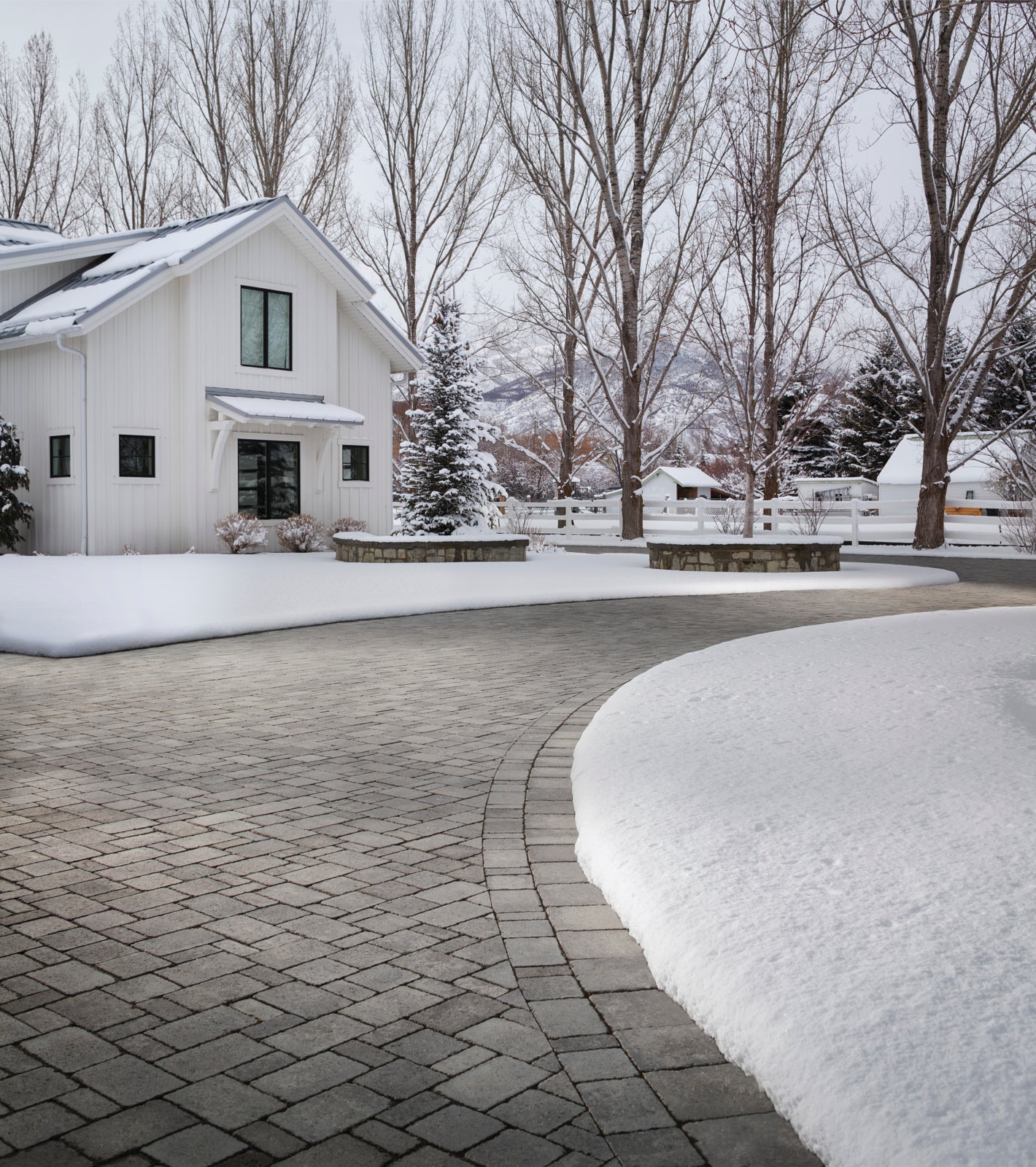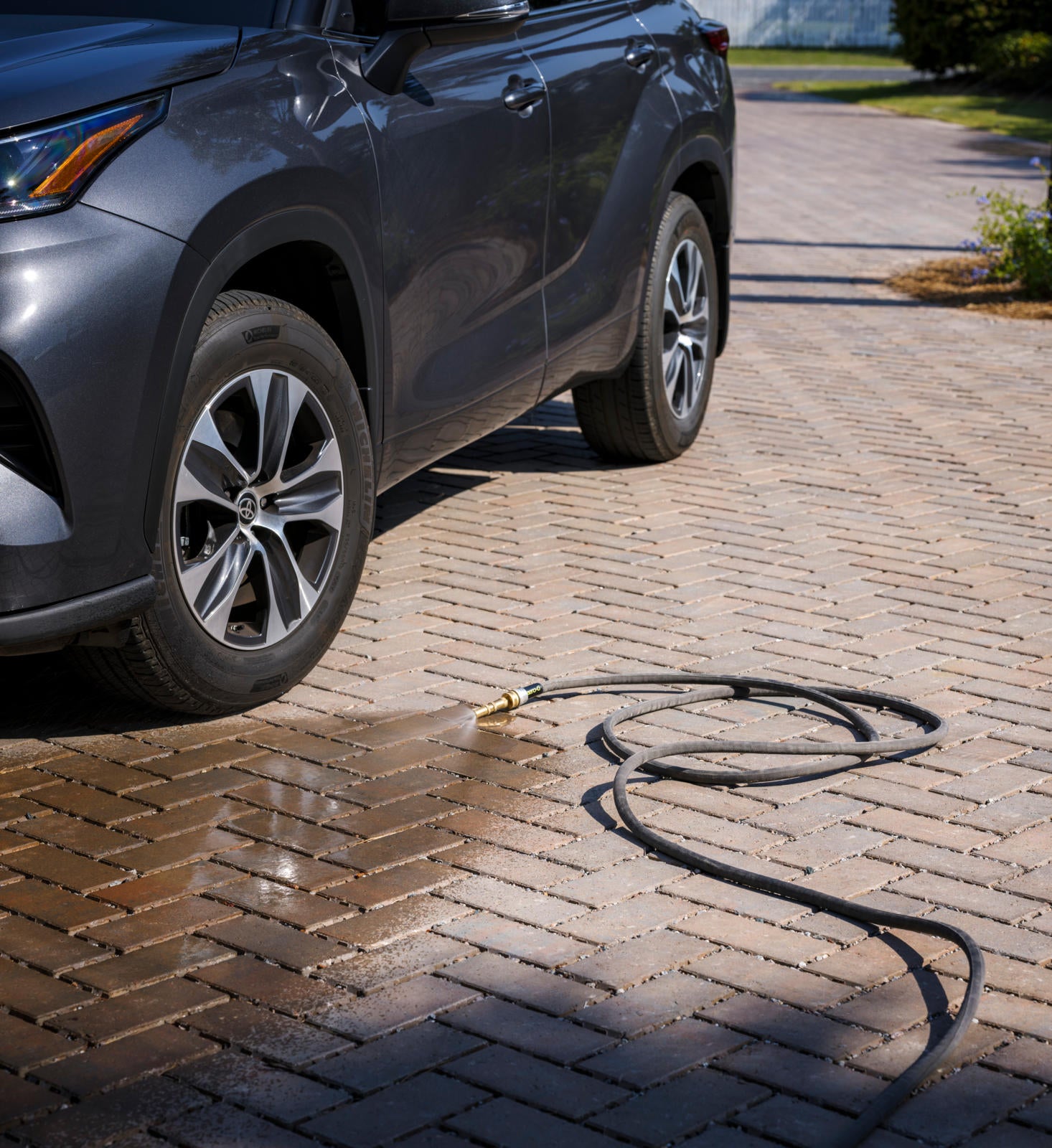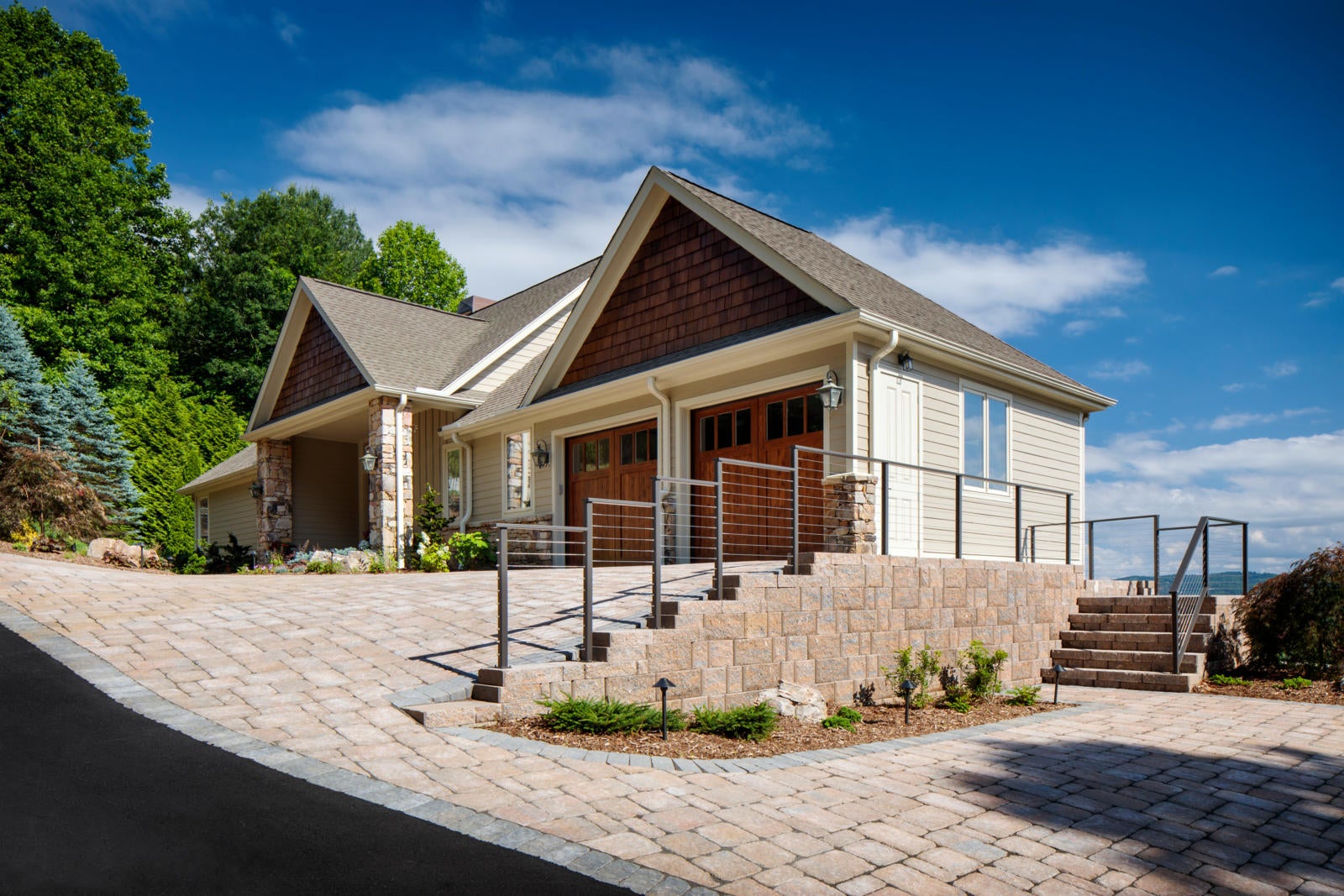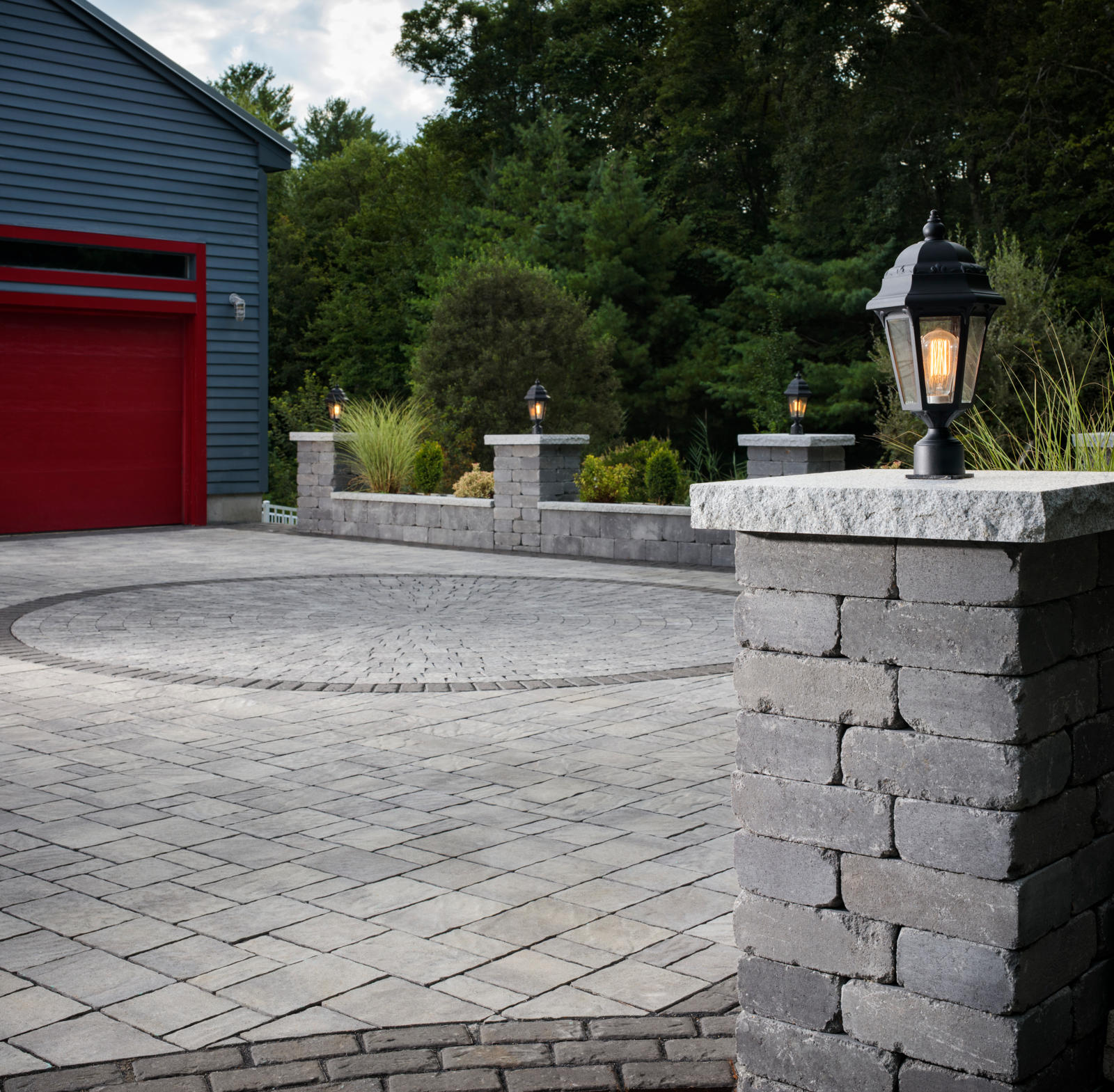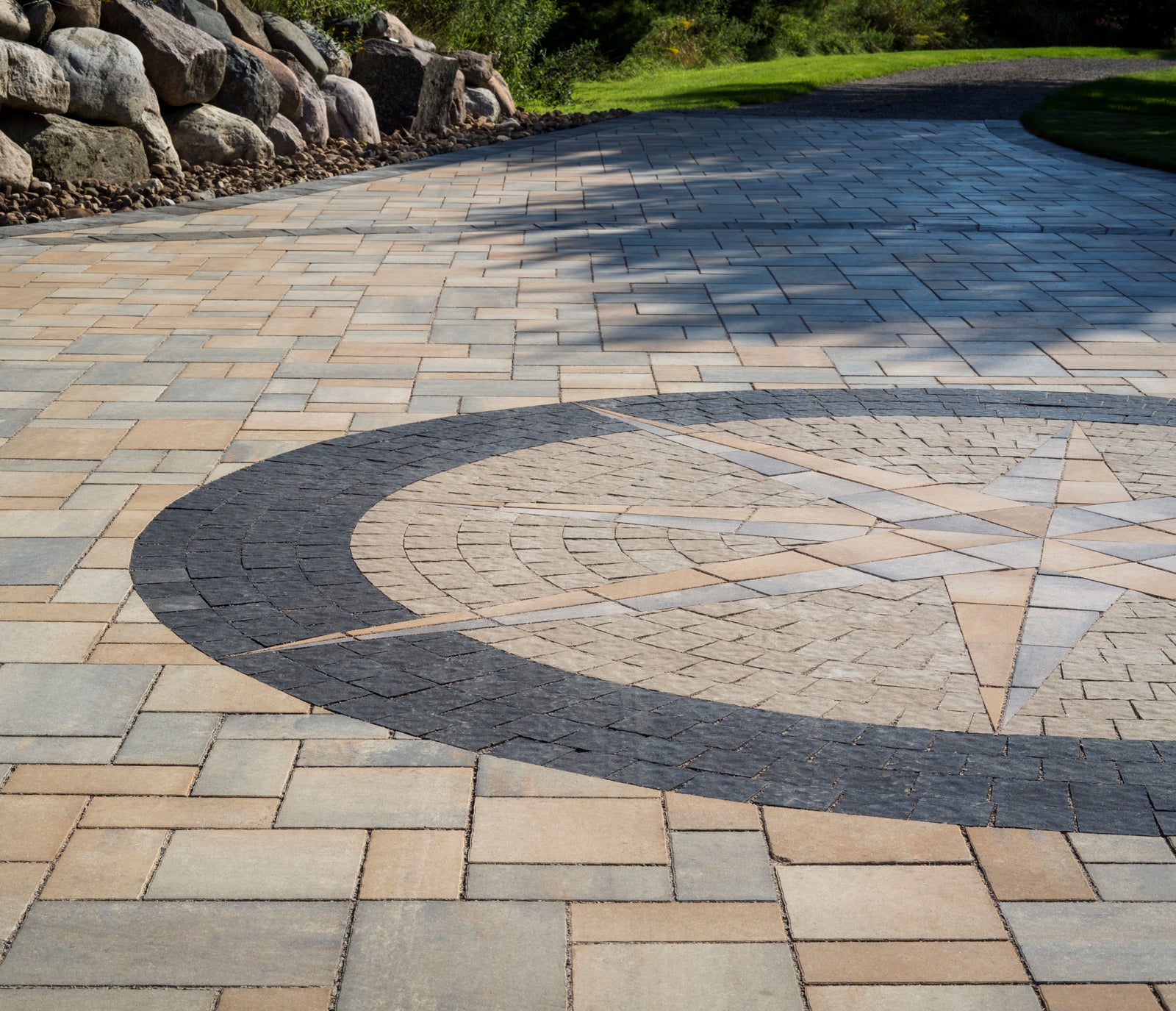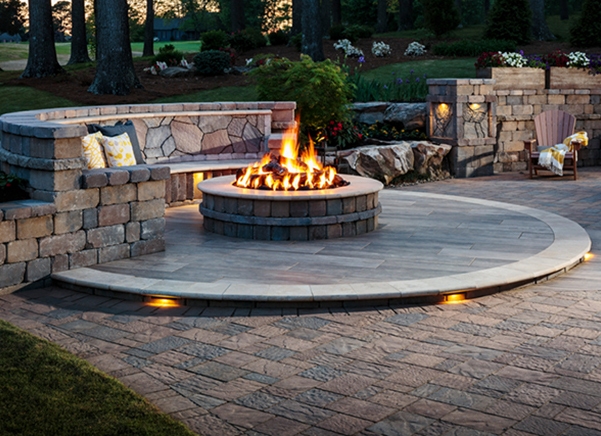Paver driveway drone videos. Driveways installed by Steve Lawrence at Coastal Pavers in California.
Paver driveways are focal points for some of the most stunning homes in the world. Why, you ask? The use of pavers allows for unique customizations, strength, durability, and longevity that cannot be found in standard concrete and asphalt.
From sub-zero temperatures to rainy spring seasons, driveways need to endure all of the elements. This is why choosing the right material is critical for the longevity of your project.
There are many things to consider when building your dream driveway. Read below to find out why Belgard pavers are the best option for your outdoor project!
Paver vs Concrete Driveways
Flexibility is essential when it comes to driveways. With temperature and moisture fluctuations, all driveway materials will expand and contract during the freeze/thaw seasons and extreme heat seasons. Standard concrete and asphalt often crack in extreme elements since they do not have joints to release pressure. These cracks allow moisture to seep beneath the concrete causing erosion, settling and more cracking. Adding vehicular weight to this damage will make matters worse and can lead to the driveway needing to be replaced.
Pavers are meant to undergo the elements as the joints allow a constant release of pressure without sacrificing durability. When it comes to the install of driveway pavers, base layers of sand and gravel, paired with ground compaction, allow for small-scale movement during seasonal frost or heat cycles without cracking. In areas of high moisture, Belgard interlocking permeable pavers are a great driveway option. They allow water to easily drain though the joints into the base materials to avoid pooling and heavy runoff. In addition, interlocking pavers disperse their load across several pavers onto the base layers to provide increased durability.
Belgard pavers offer a much wider range of customization options than concrete. With pavers, you can choose from a variety of colors, patterns and shapes to create the perfect design for your driveway. Concrete is limited to the colors and styles offered by the manufacturer. Pavers give you the ability to create a truly one of a kind look for your outdoor space.
“With the wide variety of paver shapes and colors that Belgard offers, the only limit to color and pattern options is your own imagination.” – Belgard Master Craftsman Dan Hughes from Segmental Systems
In many cases, cost is an important factor to consider when choosing between a paver vs concrete driveway project. It is important to keep in mind that Belgard paver driveways last 30+ years, whereas concrete driveways can chip and crack just weeks after installation. With pavers, you get a better long-term return on investment for your property.
Paver vs Stamped Concrete Driveways
If considering a stamped concrete driveway vs pavers, hold up – you may want to reconsider! Although stamped concrete is less expensive up front, it does not compete with pavers in terms of longevity, durability and style. Unlike the endless design and customization options available with pavers, stamped concrete patters are limited to pre-made templates provided by the manufacturer.
The structural integrity of Belgard pavers makes them capable of enduring all elements. Pavers ability to disperse load-bearing weight across a section of pavers ensures that chips and cracks will not be an issue, regardless of the pattern they are laid. Paver joints allow expansion and contraction in freeze and thaw cycles that stamped concrete does not. Like traditional concrete, stamped concrete is susceptible to deterioration in areas of high traffic or harsh elements.
With pavers often lasting twice as long as stamped concrete, this option offers low maintenance and a timeless look. We hope you’re beginning to see what makes them the best choice for driveways!
Paver vs Asphalt Driveways
While there are various materials to choose from when constructing your driveway, asphalt is often found to be the most simple. However, when choosing between pavers vs asphalt driveways, there are some important factors to take into account.
One of the biggest differences between driveway pavers vs asphalt is design. With pavers, you have the ability to customize colors, patterns, and shapes that result in one of a kind driveways. Whereas with asphalt, you do not have any custom design options.
Although the price of asphalt is less than pavers, the level of maintenance required for asphalt is much higher. Asphalt requires frequent cleanings and sealcoat to help delay deterioration. Pooling of water is common in asphalt driveways and leads to erosion and settling of the material. The lifespan of asphalt is similar to both traditional concrete and stamped concrete, which is still about half as long as pavers. And, asphalt has a tendency to crumble as it ages, diminishing curb appeal.
Whether you are going for a contemporary or traditional look, we are passionate about helping you make the choice that best expresses your personal style. Check out the Belgard Inspiration Gallery to discover what is possible when bringing your vision to life from driveways to a myriad of other uses and applications.
. . .

About the Author
Guest blogger Tallen Hughes is an unmanned aircraft pilot who has been flying drones for photography, videography, land surveying and real estate for 5 years. He grew up in the hardscape industry in Spokane, Washington where he learned all about the joys of outdoor living spaces. Tallen currently resides in San Diego, California and has a passion for the great outdoors. If you can’t find him flying drones and editing on his laptop, you’ll likely find him hiking, camping, or at the beach.

